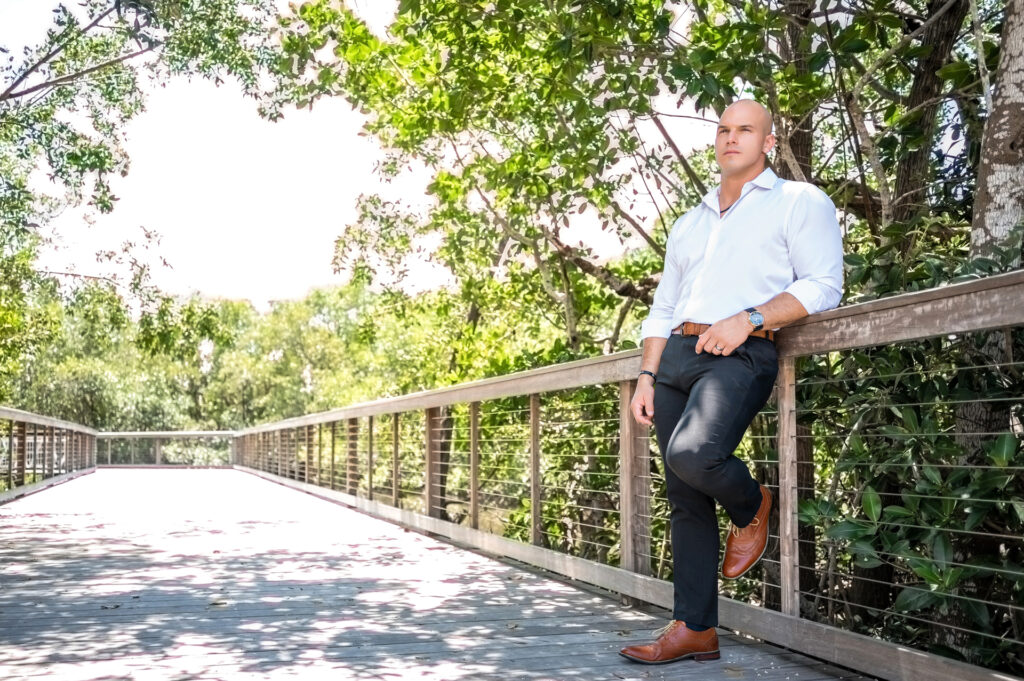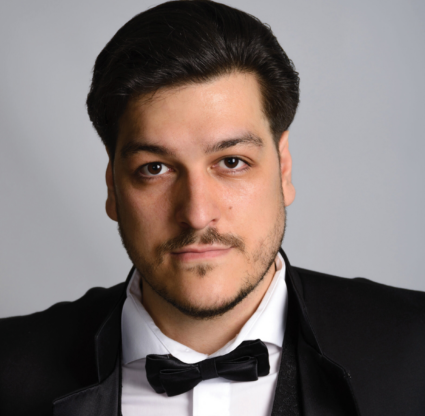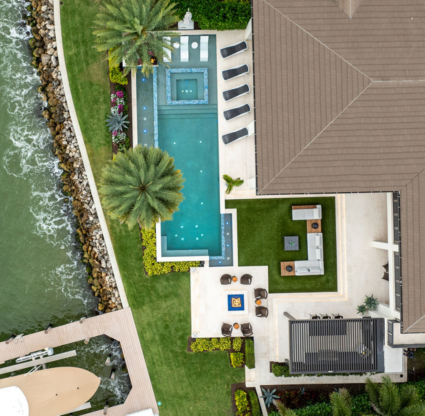Trigger warning: this story contains mentions of suicidal ideation, self-harm and violence. My time in the U.S. Marines officially began in 2010, but you could say it started much earlier. I was born in Miami and raised in Naples, with a family culture and personality primed for the military. My father used to be a bodyguard for a governor in Uruguay, and my brothers and I all joined the service: three U.S. Marines and one sheriff’s deputy.
I became an ordinance technician for attack helicopters—basically arming and loading modern ‘Hueys’ and ‘Cobras.’ After the 2012 attack at the U.S. embassy in Benghazi, Libya, the Marines boosted security at embassies all over, and I ended up in the Marine security guard program, with duty stations in India, Nicaragua and Madagascar.
I wasn’t in active duty but experienced multiple violent incidents. In one situation, fellow marines and I got attacked by a mob, and I had to kill a man with my hands. In another event, I was attacked by a wild animal and had to fight for my life. I escaped but was bleeding out while hiking a long way back to get help. It ended with a medical evacuation out of the country and more lifelong scars.
After my military discharge in 2016, I went to work in private security for government facilities in Indonesia for a year—the time was like three lifetimes in one. It was a year after leaving the Marines, and my gears started to slow down. There was time to analyze my life, to think about what had happened and what I’d done. I was in mental torment and went into a deep, suicidal depression.
But, my life wasn’t terrible. I would look at myself in the mirror and say, ‘People have it worse. There’s no reason for you to feel like you want to kill yourself right now.’ No matter what I told myself, it didn’t matter. I later learned that I couldn’t think my way out of the fog.
It doesn’t really matter who you are or what part of life you’re in; when you’re in a depression, it has a grip on you. The worst of my suicidal ideations lasted a couple of months. I would sit on the edge of my 12-story building with my feet dangling off. I’d play out how it would feel every day: ‘What would my family think?’ ‘Should I run off, or should I jump?’
The only thing that saved me was the hand of God. In a dream, I encountered what I call ‘The Manganni Jungle,’ and I finally felt peace there. The name comes from Tarzan. I meditated on this mental oasis. I also started watching a lot of National Geographic and Discovery Channel documentaries and visiting forests or wooded areas. It was the only way my brain could find release.
Around this time, in 2018, I moved back to Naples and started building a physical Manganni Jungle. I needed to run at top speed, climb a tree, jump from it and express other animalistic movements. I started doing these workouts on the daily, which helped with my depression. (I now invite other veterans and athletes into this space to train and heal.)
I had also tried a lot of other things to treat my depression, PTSD and isolation—including taking all sorts of prescribed pills. That had mixed results. Then I met Charles Patti of MY Self Wellness, one of Florida’s emerging health centers specializing in psychedelic ketamine therapy. Charles told me about his Warriors of Consciousness program, which donates treatments to veterans. I wanted to change who I was, and I trusted Charles, so I gave it a try.
During my first experience, I was completely immersed in a substance that I felt was Jesus. It was like my spirit had returned to its source—like I was a drop of the ocean going back into the ocean. I was twisting and turning, almost like I was in a washing machine. Ketamine was a bridge between the physical and the spiritual. It felt clean, peaceful and purposeful.
After each of the six treatments (which typically span six weeks), I could feel the medicine for the next few days. It felt like I was creating new neurological pathways. It didn’t take my problems away, but it gave me a new perspective on how to see and approach them. I became less scared of my problems, and I no longer needed to be in control of everything. That was major—I used to need all the solutions to everything and to know exactly what was going to happen next.
To compare the beginning of treatment and the end: The first one was like I was a baby, coming back to a motherly love. And by the last one, I became astounded with who I was; I remembered who I am. I now view my time in the military, even the traumatic things, as something I had to experience so I can understand what others are going through. I started the United Manganni Veterans nonprofit, and we’re expanding to reach more people. I want to pass along to any veterans that they are not alone in their isolation.
Editor’s note: Ketamine therapy for PTSD and other treatment-resistant mental health issues is an off-label use of an anesthetic drug that’s gaining popularity in the U.S. and still undergoing research. Anyone interested should consult their physician first and only pursue ketamine treatment through certified medical and mental health practitioners, according to the American Psychiatric Nurses Association. If you or anyone you know is struggling with thoughts of self-harm or suicidal ideation, please contact the National Suicide Prevention Lifeline at 988.





